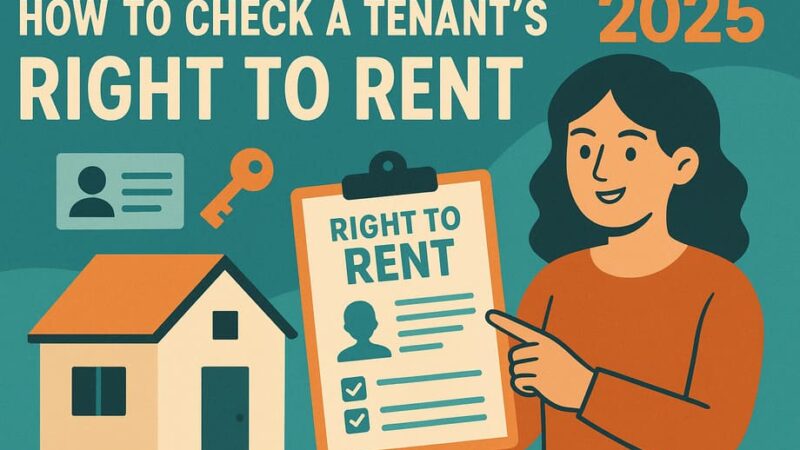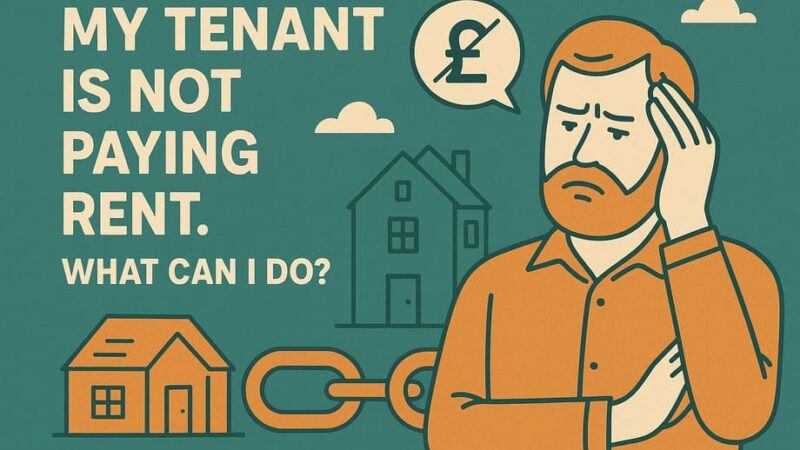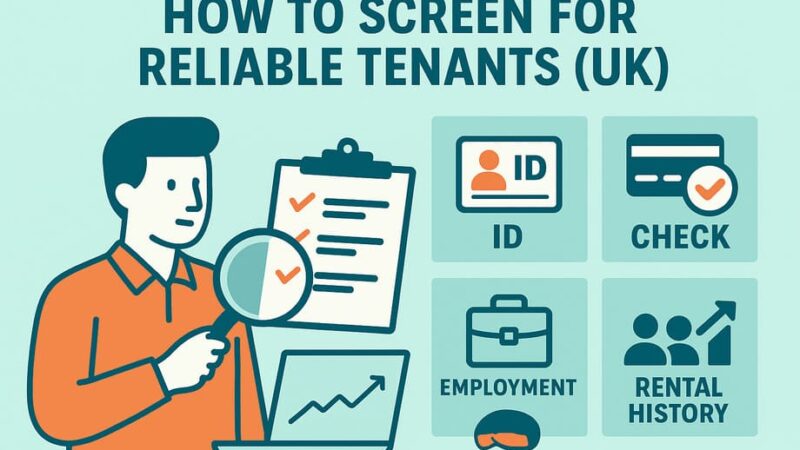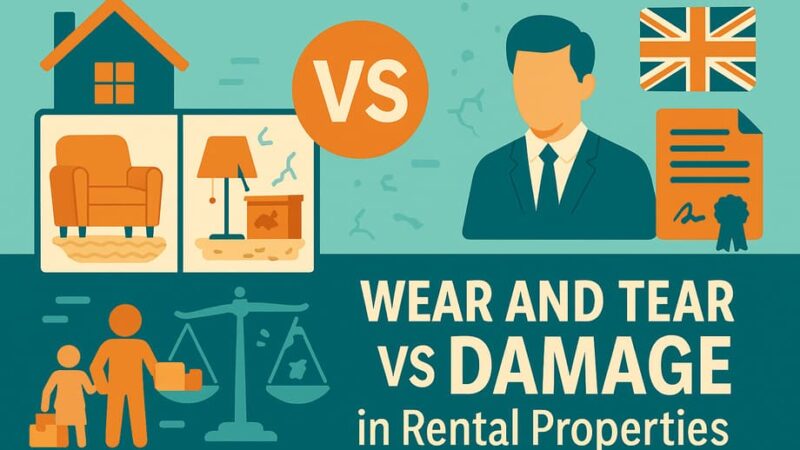What to Do if a Tenant Stops Paying Rent
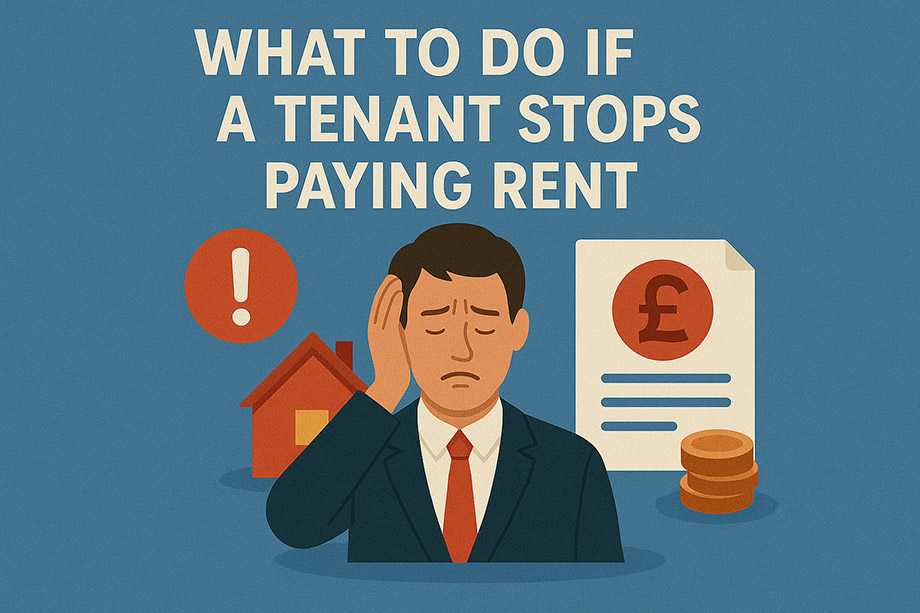
If your tenant stops paying rent, it can be stressful. The sooner you take the right steps, the better your chances of resolving the issue quickly and legally. This guide will help you understand what to do—from the first missed payment to legal action if necessary.
Table of Contents
Start by Communicating Clearly
The moment rent is late, reach out to your tenant. There could be a simple reason like a bank error or a short-term problem.
Contact your tenant by phone, text, or email. Keep the tone calm and professional. Follow up any conversations with an email or letter. This helps create a record of your efforts.
Try to work out a solution together. Maybe a payment plan will help your tenant catch up. Make sure to get any agreement in writing so you both have a clear understanding.
Check Your Tenancy Agreement and Guarantor Details
Before moving forward, review your tenancy agreement. Look for clauses on late payments and what happens next.
If the tenant has a guarantor, you can contact them after about two weeks of missed rent. Send a formal letter explaining the situation and what you expect.
Serve a Formal Notice if Needed
If talking things through doesn’t work, you may need to serve a formal notice.
A Section 8 notice is used when the tenant is behind on rent by at least two months. This notice gives the tenant 14 days to respond or leave.
A Section 21 notice is for ending a tenancy without needing a reason. You can only use this at the end of the fixed term and must follow all legal rules for serving it.
Serving notices correctly is important. Mistakes can delay the process.
Taking Legal Action
If the tenant doesn’t pay or leave after the notice, you can apply to the court for a possession order.
The court will decide if you can regain your property. If the tenant still refuses to leave, you can ask the court for a warrant for possession. This allows bailiffs to evict the tenant.
You can also claim any unpaid rent through the courts. Claims under £10,000 usually go to the Small Claims Court. Larger amounts go to the County Court. Winning a claim can give you a County Court Judgment, which affects the tenant’s credit rating.
Try Mediation
Before going to court, consider mediation. A mediator can help you and your tenant find a solution without expensive and time-consuming legal action.
Mediation can sometimes save the tenancy and help both sides avoid stress.
Use Rent Guarantee Insurance
If you have landlord insurance that covers rent arrears, check your policy. You may be able to claim lost rent if you follow the correct steps.
Make sure you serve any notices and involve legal professionals if your policy requires it.
What to Do After Eviction
After you regain possession, inspect your property for damage. Use the tenant’s deposit to cover any unpaid rent or repairs, following the rules of your tenancy deposit scheme.
Then, start the process of finding new tenants. Be sure to check references carefully to avoid problems in the future.
How to Prevent Rent Arrears
Good tenant screening is your best defense. Use credit checks, proof of income, and references to find reliable tenants.
Always protect deposits legally. Consider asking for a guarantor if the tenant’s finances are uncertain.
Set clear expectations around rent dates and keep communication open. Sending reminders can help tenants stay on track.
Summary of Steps for Landlords
- Contact your tenant to discuss the missed rent.
- Offer a payment plan if possible.
- Contact the guarantor if there is one.
- Serve a Section 8 or Section 21 notice if needed.
- Apply to court for possession if the tenant doesn’t pay or leave.
- Enforce eviction with bailiffs if necessary.
- Claim unpaid rent through the courts.
- Re-let the property with thorough tenant checks.
Final Thoughts
Dealing with unpaid rent is never easy. Acting quickly, keeping good records, and following the law will protect you. Remember to be fair but firm. Taking steps to screen tenants carefully can reduce problems later.
If you need help, consult a legal expert to make sure you handle everything correctly.
Frequently Asked Questions (FAQ)
What should I do first if my tenant doesn’t pay rent?
Contact your tenant immediately to understand why the rent is late. Open communication often helps resolve issues quickly.
Can I evict a tenant just because they missed one payment?
No. You must follow the legal process, which usually involves serving a formal notice and giving the tenant time to pay or leave.
What is a Section 8 notice?
It’s a legal notice used when a tenant has broken the tenancy terms, like falling behind on rent. It gives the tenant a deadline to pay or move out.
What is a Section 21 notice?
A Section 21 notice lets landlords end a tenancy without giving a reason, usually at the end of a fixed term. It must be served properly to be valid.
Can I contact the tenant’s guarantor for unpaid rent?
Yes, if there is a guarantor on the tenancy agreement. You should inform them in writing about the arrears.
How long does the eviction process take in the UK?
The process can take several weeks to months, depending on the notice type, court availability, and whether the tenant contests the eviction.
Can I claim unpaid rent through the courts?
Yes, you can file a claim for unpaid rent through the Small Claims Court or County Court, depending on the amount.
What if the tenant leaves without paying rent?
You can still claim the unpaid rent through the courts and use the tenant’s deposit to cover any losses.
Should I use mediation?
Mediation can be a good way to settle disputes without going to court. It can save time, money, and help maintain a positive landlord-tenant relationship.
How can I prevent rent arrears in the future?
Screen tenants thoroughly, require deposits, consider guarantors, and keep communication open throughout the tenancy.
Last Updated on August 21, 2025 by James Cartwright


